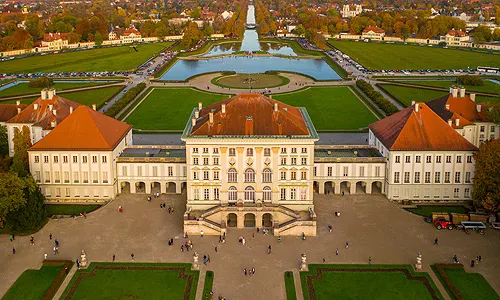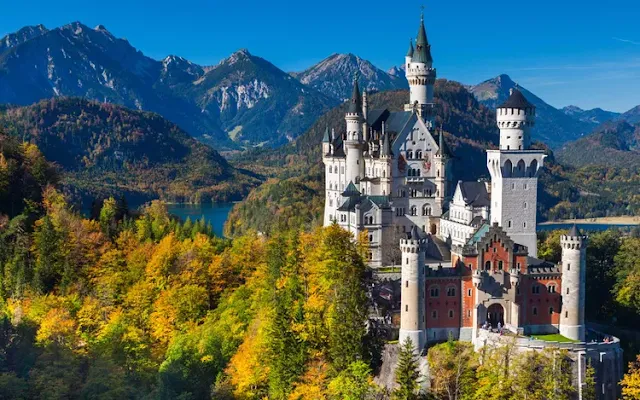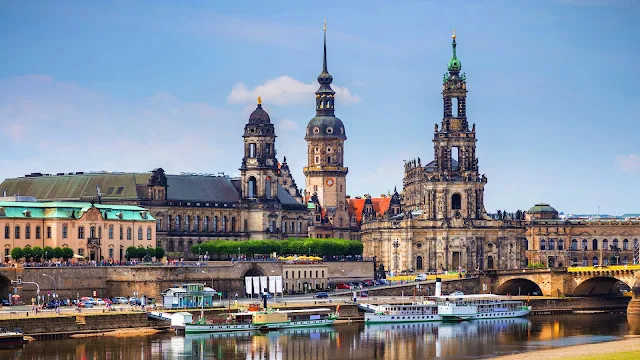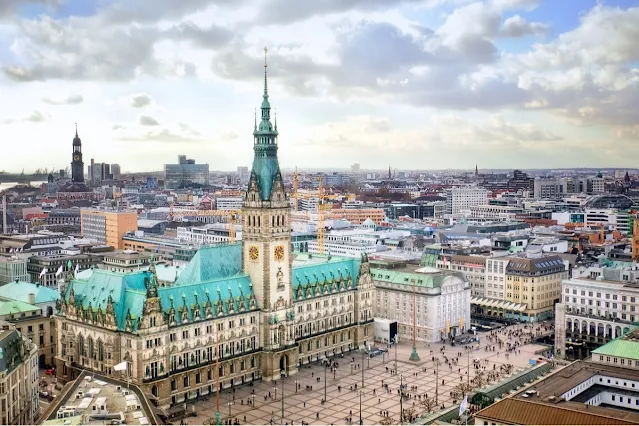Germany
Discovering Germany: A Comprehensive Travel Guide
Germany, a country rich in history and culture, captivates travelers with its blend of the old and the new. From stunning landscapes and vibrant cities to rich traditions and delectable cuisine, Germany is a destination that offers something for everyone. This article delves into essential facts, geographical features, historical milestones, cultural nuances, social aspects, economic landscape, and top tourist destinations in Germany, providing a detailed overview of this fascinating country.
Basic Facts
Germany is located in Central Europe and is bordered by nine countries: Denmark to the north, Poland and the Czech Republic to the east, Austria and Switzerland to the south, and France, Luxembourg, Belgium, and the Netherlands to the west. It has a total area of approximately 357,022 square kilometers (137,847 square miles), making it the seventh-largest country in Europe.
Key Statistics
- Population: Approximately 83 million (2023)
- Capital: Berlin
- Official Language: German
- Currency: Euro (€)
- Time Zone: Central European Time (UTC +1)
The country is divided into 16 federal states, known as Bundesländer, each with its own unique identity and cultural traits.
 |
| Brandenburg Gate |
Geographical Features
Germany's diverse landscape features mountains, forests, rivers, and coastlines. The country can be divided into several geographical regions:
- The Alps: Located in the southern part of Germany, the Bavarian Alps offer stunning views, skiing, and hiking opportunities.
- The Rhine River: One of Europe’s major rivers, the Rhine runs for 1,230 kilometers (764 miles) and is lined with charming towns and vineyards, contributing significantly to the wine industry.
- The North German Plain: Characterized by flat landscapes, this area features many lakes, marshes, and forests.
- The Black Forest (Schwarzwald): A mountainous region in southwestern Germany known for its dense forests, hiking trails, and traditional villages.
Germany is home to 16 national parks, including the Saxon Switzerland National Park and the Berchtesgaden National Park, which showcase the country’s natural beauty and biodiversity.
Historical Overview
Germany's history is complex, marked by periods of unity and division. Here are some key historical milestones:
- Holy Roman Empire (800–1806): A significant period in German history, where many German territories were part of a multi-ethnic empire.
- German Empire (1871–1918): The unification of Germany under Otto von Bismarck marked a new era of industrialization and militarization.
- World War I (1914–1918): Resulted in significant political changes and the abdication of the Kaiser.
- Weimar Republic (1919–1933): A turbulent period marked by economic instability and political extremism.
- Nazi Germany (1933–1945): Adolf Hitler’s regime led to World War II and the Holocaust, which had profound effects on the country and the world.
- Cold War Division (1949–1990): Germany was divided into East Germany (GDR) and West Germany (FRG) during the Cold War.
- Reunification (1990): The fall of the Berlin Wall on November 9, 1989, symbolized the end of division and the reunification of Germany.
 |
| Reichstag building |
Cultural Heritage
Germany boasts a rich cultural heritage that is reflected in its literature, music, art, and philosophy. Renowned figures such as Johann Wolfgang von Goethe, Friedrich Schiller, and the Brothers Grimm have shaped German literature. In music, composers like Johann Sebastian Bach, Ludwig van Beethoven, and Richard Wagner have left an indelible mark on the world.
Festivals and Traditions
Germany is known for its lively festivals, which play a crucial role in its cultural identity:
- Oktoberfest: Held annually in Munich, this beer festival attracts around 6 million visitors each year, celebrating Bavarian culture with traditional food, music, and, of course, beer.
- Christmas Markets: Throughout Germany, charming Christmas markets offer handmade gifts, delicious food, and festive cheer. The markets typically open in late November and continue until Christmas.
- Karneval: Celebrated primarily in the Rhineland, this pre-Lenten festival includes parades, costumes, and vibrant celebrations.
- Rhein in Flammen: A series of fireworks displays along the Rhine River, celebrated during the summer months.
Culinary Delights
German cuisine is hearty and diverse, featuring regional specialties. Here are some popular dishes:
- Bratwurst: Grilled sausages made from pork, beef, or veal, often served with mustard and sauerkraut.
- Sauerbraten: A pot roast, typically made from beef, marinated in a mixture of vinegar and spices, and served with red cabbage and dumplings.
- Sauerkraut: Fermented cabbage, a common side dish that pairs well with many meals.
- Pretzels (Brezn): Soft, doughy treats that are a favorite snack, often enjoyed with mustard or cheese.
- Black Forest Cake (Schwarzwälder Kirschtorte): A rich chocolate cake layered with cherries and whipped cream, originating from the Black Forest region.
Social Fabric
Germany has a rich social life characterized by its commitment to community and cultural exchange. Key aspects of German society include:
Diversity
Germany is home to a diverse population, with around 25% of residents having a migration background. This multicultural environment enriches the social fabric, fostering cultural exchange and tolerance.
Education and Innovation
Germany boasts one of the world’s strongest education systems, with 16 of its universities ranked among the top 200 globally. The country is also a leader in innovation, particularly in engineering and technology, contributing to its robust economy. The Dual Education System, which combines vocational training with classroom learning, is a model emulated worldwide.
Economic Landscape
Germany has the largest economy in Europe and the fourth-largest in the world. Key economic statistics include:
- GDP (2023): Approximately €4.6 trillion (around $5 trillion)
- Unemployment Rate (2023): Approximately 3.6%
- Key Industries: Automotive, machinery, chemicals, electronics, and pharmaceuticals.
Major Companies
Germany is home to several multinational corporations, including:
- Volkswagen: One of the largest car manufacturers in the world.
- Siemens: A global leader in engineering and technology.
- Bayer: A multinational pharmaceutical and life sciences company.
Germany's commitment to renewable energy has led to significant investments in wind and solar power, making it a pioneer in sustainable practices.
Tourism in Germany
Germany is a top tourist destination, attracting over 37 million international visitors each year. Its rich history, stunning landscapes, and vibrant cities make it an appealing place to explore. Here are some of the must-visit attractions:
1. Berlin
The capital city is a melting pot of history and modernity. Key attractions include:
- Brandenburg Gate: An iconic symbol of Berlin and a historical monument.
- Berlin Wall Memorial: A reminder of the city’s divided past.
- Museum Island: A UNESCO World Heritage Site home to five world-renowned museums, including the Pergamon Museum.
2. Munich
Famous for its beer gardens and Oktoberfest, Munich also offers:
- Marienplatz: The central square featuring the stunning New Town Hall (Neues Rathaus) and its famous Glockenspiel.
- Nymphenburg Palace: A magnificent Baroque palace with beautiful gardens and impressive museums.
- Englischer Garten: One of the largest urban parks in the world, perfect for leisurely strolls and picnics.
3. Neuschwanstein Castle
Located in Bavaria, this fairy-tale castle is a must-see. Built by King Ludwig II in the 19th century, it inspired Disney's Sleeping Beauty Castle and offers breathtaking views of the surrounding mountains.
4. Rhine Valley
The Rhine River region is famous for its picturesque villages, vineyards, and castles. A river cruise is an excellent way to enjoy the stunning scenery, with stops in charming towns like Bacharach and Rüdesheim.
5. Heidelberg
Known for its romantic charm, Heidelberg features:- Heidelberg Castle: A hilltop castle with panoramic views of the city and the Neckar River.
- Old Bridge (Alte Brücke): A beautiful historic bridge connecting the old town with the opposite riverbank.
6. Dresden
This city is known for its stunning architecture and art. Key sites include:
- Frauenkirche: A beautiful Baroque church reconstructed after World War II, symbolizing reconciliation.
- Zwinger Palace: An architectural masterpiece housing art collections, including works by Raphael and Rembrandt.
7. Black Forest
Famous for its dense forests and charming villages, the Black Forest is perfect for outdoor enthusiasts. Hike through scenic trails, visit traditional cuckoo clock shops, and savor local specialties like Black Forest cake and ham.
8. Hamburg
- Miniatur Wunderland: The world’s largest model railway exhibit.
- Elbphilharmonie: An architectural marvel and concert hall with stunning views of the harbor.
Conclusion
Germany is a country that seamlessly blends tradition and modernity, offering travelers a unique experience filled with rich history, diverse culture, and stunning landscapes. Whether you are exploring vibrant cities, indulging in delicious cuisine, or immersing yourself in breathtaking countryside, Germany promises an unforgettable journey. With its welcoming atmosphere and endless attractions, it’s no wonder that millions of visitors flock to this remarkable country each year.
References
- Bäuerle, A. (2020). The Cultural Heritage of Germany. Berlin: Springer.
- Kock, R. (2021). Germany: A Historical Overview. London: Routledge.
- Müller, J. (2019). German Cuisine: Traditions and Innovations. Munich: Südwest Verlag.
- Germany National Tourist Board. (2023). Discover Germany. Retrieved from www.germany.travel
- UNESCO. (2024). World Heritage List: Germany. Retrieved from whc.unesco.org
Germany's captivating blend of history, culture, and stunning landscapes makes it a must-visit destination. Whether you're savoring a bratwurst, exploring ancient towns, or enjoying a cake at a bustling festival, the experiences in Germany are as diverse as its people.








.jpg)








No comments